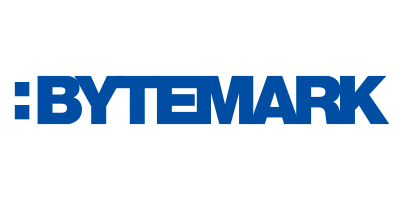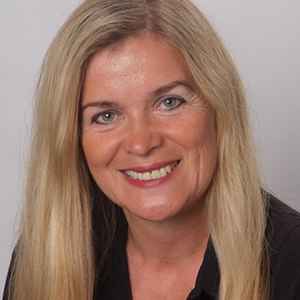
Not Data but Trust is the New Oil
Eva Pascoe
Ever since we opened world’s first Cybercafe Cyberia in 1994, the technology has conspired against us to turn our budding online community from a friendly, trusted cyber-village to a dystopian, post “data storm” apocalypse. What can be done to press the UNDO button? Eva will argue that the Venture Capital obsession with data is missing the point as not data but trust builds the infrastructure for our Digital Commons.
Eva Pascoe is the co-founder Cybersalon.org.
She’s studied Linguistics, Psychology and Ergonomics of Human-Computer Interaction, and Human Trust in Machines and Dynamic Decision Making, and her work has been published in Proceedings of Decision Making Conference.
Eva co-founded Cyberia Internet Café, the world’s first Internet Café in 1994, pioneering the Internet early online/offline communities, online secure payment, and building the business globally across Europe/Asia with Mick Jagger as one of the investors. She has designed the first fashion e-commerce stores for Topshop and Topman, as well as many other High Street brands. She also won the Sunday Times Technology Award and covered tech innovation for The Guardian, Huffington Post and Newsnight.
She now works as Head of Retail Futures at The Retail Practice, a multichannel consultancy in UK and Europe supporting retailers to integrate the virtual and physical to create irresistible and fun shopping experiences. Eva is a co-signatory of a campaign for Digital Magna Carta for UK, supporting Tim Berners-Lee and Cybersalon’s initiative launched at Web We Want Festival in May 2015.
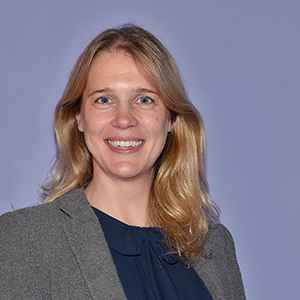
Opening Keynote: Radio Frequency engineering could…
Professor Danielle George
Explore the beauty of the radio spectrum as well as show how radio frequency engineering is at the heart of solving many of the world’s grand challenges.
Professor Danielle George is Associate Dean for Teaching and Learning in the Faculty of Engineering and Physical Sciences, and a Professor in the Microwave and Communications Systems research group at the University of Manchester. She completed her BSc in Astrophysics, MSc in Radio Astronomy at The Victoria University of Manchester based at Jodrell Bank Observatory, and her PhD in Electrical and Electronic Engineering with UMIST. She worked at Jodrell Bank Observatory as a senior Radio Frequency Engineer until 2006 when she too up a lectureship post in the School of Electrical and Electronic Engineering. She was awarded a Professorship earlier this year at the age of 38.
Danielle’s expertise in radio frequency and microwave communications has a wide range of applications across a number of industries. To date most of her research and development work has been carried out on a variety of aspects relating to ultra-low noise receivers for Space and Aerospace applications. She is involved in the $1B astronomical instrument, the Square Kilometer Array (SKA), is the UK lead for amplifiers for the $1B Atacama Large Millimeter Array (ALMA) telescope and has worked with NASA and ESA on the development of instrumentation for researchers exploring the Big Bang. She has worked with agriculturists on the development of instrumentation to measure water usage, and with a number of multi-national companies such as Rolls Royce where she worked on industrial gas turbine engines.
She thoroughly enjoys the teaching aspects of her career and lectures to both undergraduates and postgraduate students, in particular Electronic Circuit Design to undergraduates and Microwave Systems to MSc students. She is passionate about raising public awareness of the positive impact engineering has on all aspects of our everyday lives and highlighting to young people the immense depth and breadth of opportunities a career in engineering can offer.
The middle one of three sisters, Danielle grew up in Newcastle where her parents still live. Fascinated by science from an early age, she was given a telescope by her parents when she was eight years’ old and would regularly get up in the middle of the night to watch lunar eclipse. She credits this experience as the moment she first realized how physics and mathematics could be applied in a practical sense outside the classroom and as the first step on her path to her current career.
She now lives in Manchester with her husband, Richard, and daughter, Elizabeth.
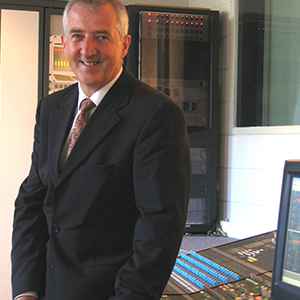
The History of Calrec Audio — The Early Years
Stephen Jagger
Hebden Bridge-based Calrec Audio is a supplier of audio mixing consoles for live broadcast with a range of consoles relied on by the world’s most successful broadcasters. The company formed in the 1950’s when a small group of electronic hobbyists got together to design and build hi fi equipment. This passion for electronics eventually took Calrec to the BBC, to America, and to a number of technological world firsts – with ideas and concepts that have shaped the way broadcasters mix audio to this day.
Today, Calrec’s customers include international broadcasters like Sky, Al Jazeera, NBC and a host of Outside Broadcast companies. In the UK, every Premier football match is through a Calrec, and every single Superbowl game in the US. Calrec consoles are trusted to broadcast the most prestigious events in the world like the Oscars, the Grammys, royal weddings, presidential inaugurations and the World Cup. Still based in Hebden Bridge, all electronic design and manufacturing is done at the company’s Nutclough Mill headquarters, from mechanical and circuit design through surface mount, assembly and test.
In this session, Stephen will tell the story of that growth.
Stephen Jagger joined Calrec Audio straight from college in 1972 as a junior engineer. He became a director of the company in 1979 and was managing director from 1989-2009.
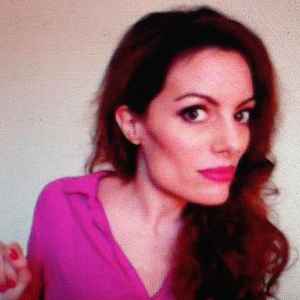
How to stay new and impossible
Leila Johnston
Hack Circus is an event series and magazine about 'fantasy technology and everyday magic' – but it's a bit of a fantasy, itself. It exists in an impossible suspension between niche and mainstream, professional and punk, physical and digital. The events have been driven by a need for newness and fairness rather than commercial incentives, and have ranged from immersive trips into space featuring artists, actors, scientists, writers and musicians, to our most recent show: a musical Journey To The Centre of the Earth powered by the sound of the audience. Much is written about innovation, but there is an art to balancing originality with commercial viability – and with examples from my own work and experience, I'd like to share some of the most important things I've learned about innovation and (im)possibility over my career as a writer, curator and artist.
Leila Johnston is a writer and performer, working with art and technology and the fantastical ideas that emerge from them. She has written several books including the choose-your-own-adventure spoof Enemy of Chaos, and she has spoken at TEDx, Ada Lovelace Day Live, the Royal Academy of Arts and many more. Her journalism credits include WIRED UK, Creative Review, The Huffington Post and The Guardian.
She is the Ringmaster of Hack Circus, a live show and magazine which has been described as 'Make magazine meets The Fortean Times'. Each issue is launched with an immersive show where scientists and hackers perform original work in collaboration with artists and musicians, experimenting with speculative science, technology and philosophy to playfully challenge the audience and themselves.
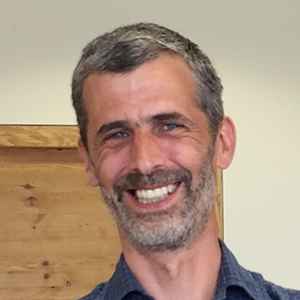
Hackability as a Human Right
Jeremy Ruston
At twelve years old, when I cack-handedly soldered together an MK-14, computers were still extremely exotic and rare; my parents would bring their friends to my bedroom to witness these marvels of the modern age.
Over the last 40 years I've watched my beloved passion grow into nearly every corner of nearly every life on the planet. Thus, I have been able to work and play across an incredible breadth of industries: television, telecoms, finance, healthcare, consumer and business dotcoms.
This talk recounts my journey from a naive, idealistic 12-year old, into a naive, idealistic 50-year old. I'll share what I've learned of the nature of software, networks, communities, and businesses, and the ultimately cathartic conflagration caused by their collision.
Jeremy Ruston is a software veteran who cut his teeth on the home computers of the late 1970's. Since then he has been CTO of several startups, Head of Ecommerce for an investment bank, and Head of Open Source Innovation at BT plc, and recently celebrated 10 years as the leader of the TiddlyWiki open source project. His passion is building tools that extend the capabilities of individuals and groups. Jeremy is based in Oxford, UK.
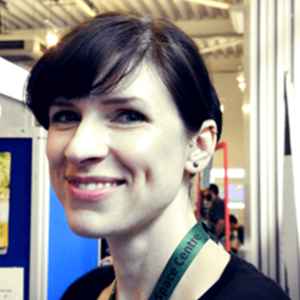
Making smart objects to reduce anxiety in everyday life
Christine Farion
Forget your keys? Wallet missing? Oh no, me too - now my day will feel ‘off’. Have you ever checked your bag more than once, wondering if you’ve packed those essential items? Or left home without them only to have a much more stressful day because you now are worried about it? When I forget I feel bad, and I’m trying to alleviate these negative emotions and implications that affect our everyday lives. Can we create smart devices to help us to communicate what is in our bag? Using an interactive tagging system, I’ll demo a bag that houses a radio frequency reader (RFID) that will let you know if you have your items or not. My talk will look at solutions to these issues, where the systems can go wrong and what can we do to make our objects smarter.
Christine has been working in creative fields for many years. She loves to build physical systems using circuits and software, which may sense and respond to our relationship with a physical world. A focus on hardware devices being integrated into everyday objects that feels natural to the user (physical computing) is a priority and she has been making prototypes that satisfy both the practical and aesthetic needs that drive her. The last few years of her research has focused on forgetfulness, distributed cognition, embedded systems and HCI. In a previous life she worked collaboratively with artists and received Arts Council and British Council funding.
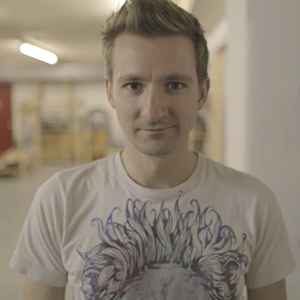
Make videogames, not money
David Hayward
The videogames industry is obsessed with big numbers: Money, profits, sales, turnover, staffing, polygon counts, particles, subscribers, pre-orders… suity men can get very excited about this stuff on stage, but these numbers tell us nothing about what videogames are, where they’re going, and why people make them. David will give you a look beyond commercial development to the teeming, fertile fringes of videogame design.
David’s background is running events about videogames, ranging from exhibitions and festivals to gamejams and arcade building workshops.
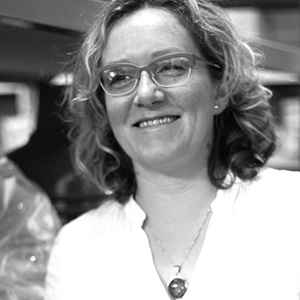
Analogue Print for a Digital World
Jennifer Crawford
Prelogram operates a uniquely ancient and modern print operation that includes state-of-the-art technology alongside the world’s largest surviving collection of hot metal typesetting machines. This is our story of how these giants of 1960s Fleet Street are being reused to fulfil todays demand for variable data printing.
Jennifer grew up in Hebden Bridge before moving to London in the 1990s to study fashion design. She has a Masters in Fashion Journalism, worked as an editor, stylist, journalist, vintage clothes dealer and has even spent a few years working in finance. In 2011 she returned to the area with her partner and two children and most recently taken on the role of Creative Director for Mytholmroyd based print brand, Prelogram.
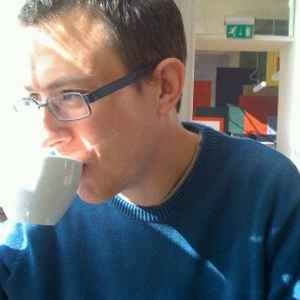
Revealing the unreadable / viewing the unviewable
David Mills
The use and abuse of CT scanners. Can we recover text hidden in rolled up documents? Can we play back film too damaged to feed though a projector? Why does David X-Ray his lunch?
David's first real job included building part of ATLAS system at CERN, he then went to to blow things up with lasers, gaining a PhD in the process. After a short spell trying to make sense of rat brain inter-cellular communication, David moved into the QMUL dental school to start imaging ancient documents. He tweets as @DTL and occasionally updates his website at webshed.org.
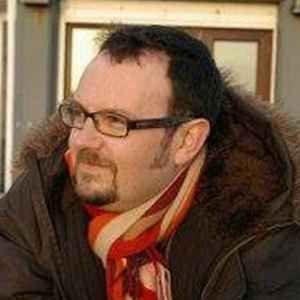
Using bits of the future to bring the greatest hits of the past into the schools of today
Chris Thorpe
3D scanning and 3D printing aren’t quite the stuff of science fiction yet, well not for grown ups anyway - they see flaws that children don’t care about or see. We can make bits of museums, the greatest hits of the world, teleport into schools so that children can handle them in lessons and interact playfully with them. One day they can be making a volcano erupt, the next they can be raising Tower Bridge with electronics. We think we can bring some much needed play and wonder into classrooms filled with tests. We can make facts come alive, make the curriculum seem more fun, help teachers and engage students more. Best of all we get to occasionally do incredible things with cameras, laser scanners and other fun things in places we’ve always wanted to go.
Chris is a technologist learning to be a CEO. He’s one of the founders of I Can Make, a new type of publisher. He’s probably best known for being the CTO of Moshi Monsters for which he still has to apologise to parents on a regular basis. His work for the Government Digital Service, The Guardian and now I Can Make is probably actually an extended community service for the expense caused to parents.
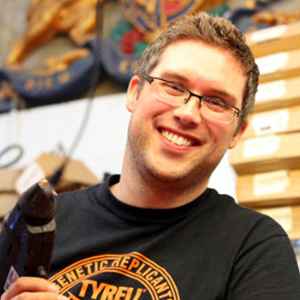
Compére
Gareth Halfacree
Gareth Halfacree is a freelance technology journalist and the co-author of the Raspberry Pi User Guide, alongside project co-founder Eben Upton. He also writes the maker-centric Hobby Tech column for Custom PC Magazine, as well as numerous features in magazines including PC Pro, Linux User & Developer, Micro Mart, Computeractive and others.
Formerly a system administrator working in the education sector, Gareth's passion for open source projects has followed him from one career to another and he can often be seen reviewing, documenting or even contributing to projects including GNU/Linux, LibreOffice, Fritzing and Arduino. He is also the creator of the Sleepduino and Burnduino open hardware projects and numerous small software tools, all released under permissive licences.
